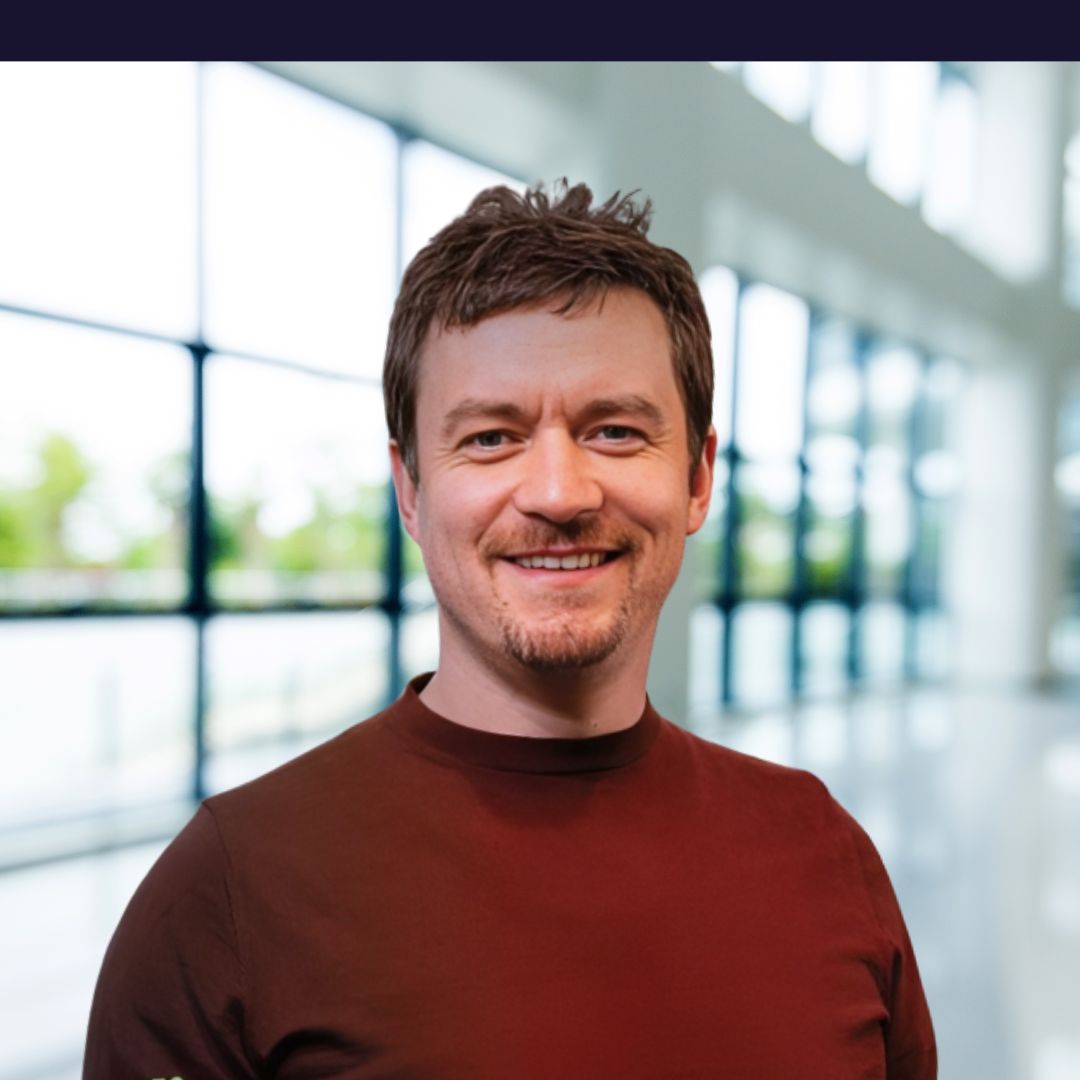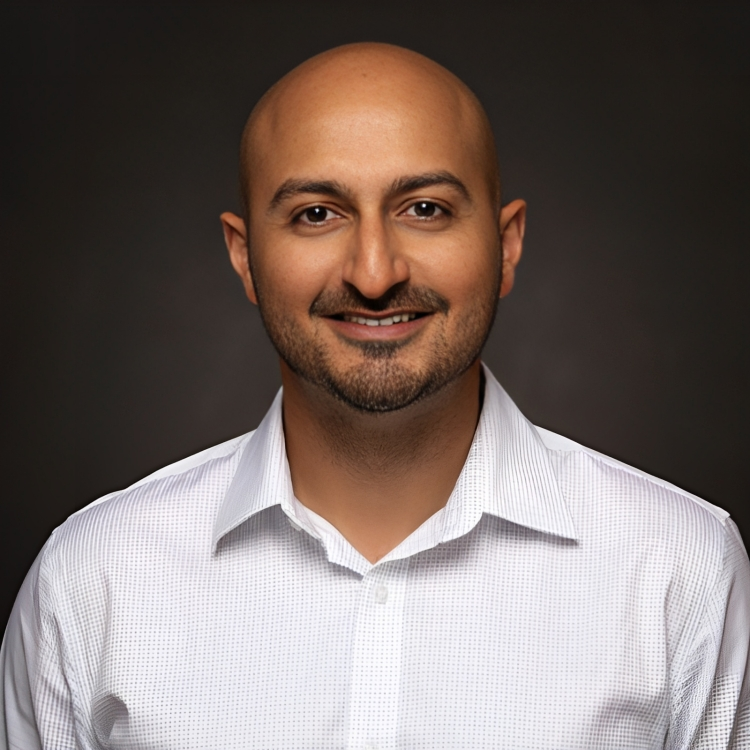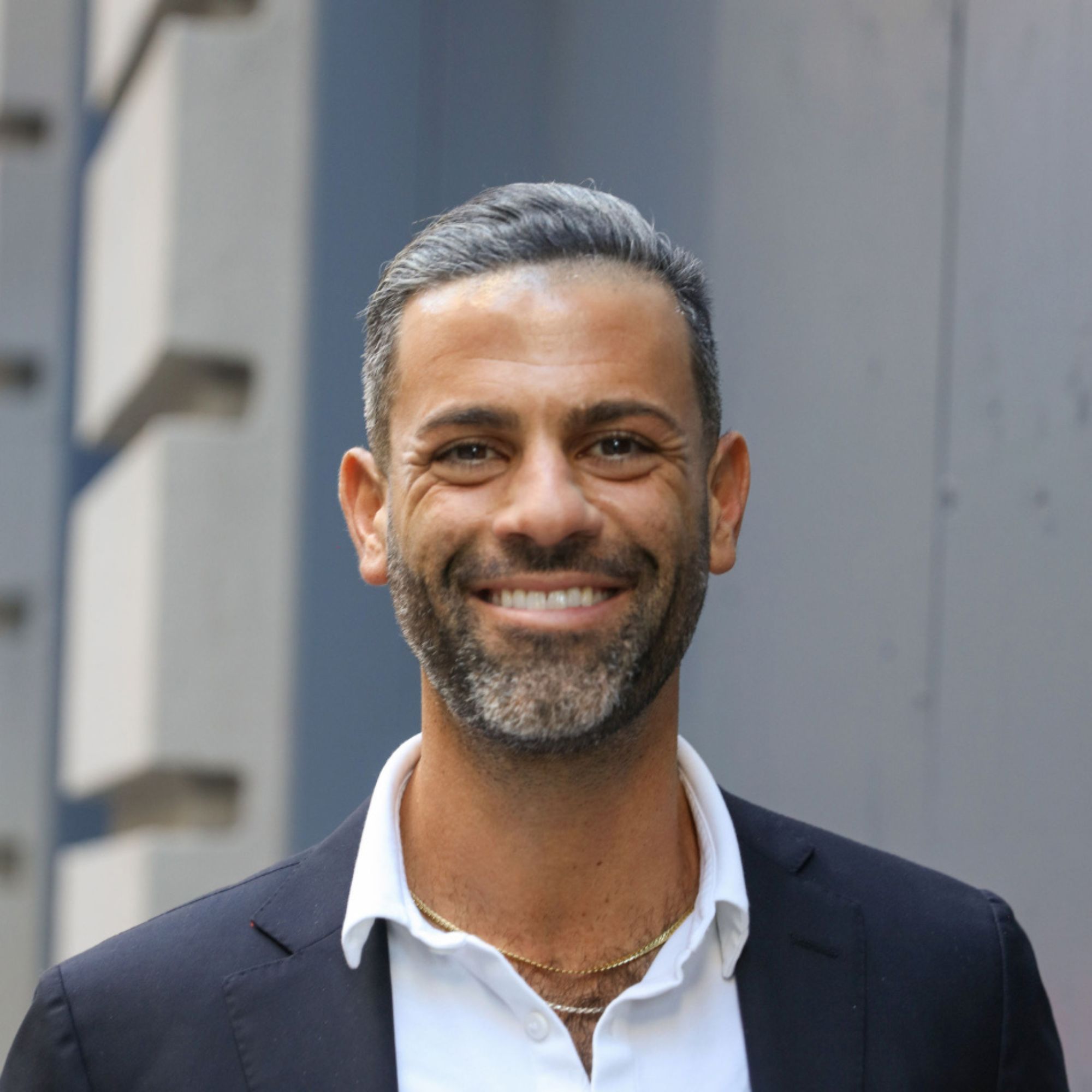Ready to build your own Founder-Led Growth engine? Book a Strategy Call

Frontlines.io | Where B2B Founders Talk GTM.
Strategic Communications Advisory For Visionary Founders
Actionable
Takeaways
Treat go-to-market as a systems engineering problem:
Michael reframed traditional sales challenges through an engineering lens, focusing on constraints, scalability, and data-driven optimization. "I try to reframe my go to market problem as an engineering one and try to pick up, okay, like what are my constraints? Like how can I do this, how can it scale?" This systematic approach led to testing 8-10 different strategies, measuring conversion rates, and building automated pipelines rather than relying on manual processes that don't scale.
Structure partnerships for partner success before revenue sharing:
Cerebrium generates millions in ARR through partners whose sales teams actively upsell their product. Their approach eliminates typical partnership friction: "We typically approach our partners saying like, look, you keep the money you make, we'll keep the money we make. If it goes well, we can talk about like rev share or some other agreement down the line." This removes commission complexity that kills B2B partnerships and allows partners to focus on customer value rather than internal revenue allocation conflicts.
Build AI-powered competitive intelligence for outbound at scale:
Cerebrium's 35% LinkedIn reply rate comes from scraping competitor followers and LinkedIn engagement, running prospects through qualification agents that check funding status, ICP fit, and technical roles, then generating personalized outreach referencing specific interactions. "We saw you commented on Michael's post about latency in voice. Like, we think that's interesting. Like, here's a case study we did in the voice space." The system processes thousands of prospects while maintaining personalization depth that manual processes can't match.
Position infrastructure as revenue expansion, not cost optimization:
While dev tools typically focus on developer productivity gains, Cerebrium frames their value proposition around market expansion and revenue growth. "We allow you to deploy your application in many different markets globally... go to market leaders love us and sales leaders because again we open up more markets for them and more revenue without getting their tech team involved." This messaging resonates with revenue stakeholders and justifies higher spending compared to pure cost-reduction positioning.
Weaponize regulatory complexity as competitive differentiation:
Cerebrium abstracts data sovereignty requirements across multiple jurisdictions - GDPR in Europe, data residency in Saudi Arabia, and other regional compliance frameworks. "As a company to build the infrastructure to have data sovereignty in all these companies and markets, it's a nightmare." By handling this complexity, they create significant switching costs and enable customers to expand internationally without engineering roadmap dependencies, making them essential to sales teams pursuing global accounts.
Conversation
Highlights
How Cerebrium Built AI Infrastructure for Enterprise Scale Without Silicon Valley’s Playbook
When ChatGPT launched in November 2022, most AI infrastructure startups followed the same script: raise massive rounds at inflated valuations, hire aggressively, and burn capital chasing every emerging trend. Michael Louis watched this unfold from Cape Town and chose a radically different path.
His company, Cerebrium, now serves customers with high five to six-figure annual contract values while operating a distributed team that’s 95% South African. Their partnerships generate millions in ARR without a traditional sales organization, and their LinkedIn outbound achieves 35% reply rates in a market where 2-4% is considered successful.
In a recent episode of Category Visionaries, Michael revealed the systematic approach that allowed Cerebrium to build sustainable competitive advantages in one of the most capital-intensive sectors in tech.
The Anti-Pattern That Created Opportunity
Cerebrium’s contrarian approach emerged from Michael’s previous experience building machine learning systems for an Instacart-equivalent grocery delivery service. The technical reality was brutal: “It was the worst experience I’ve had in my entire engineering career. Like tuning was fragmented, the unit economics didn’t make sense. It took like six months to get a product out.”
This firsthand frustration with ML infrastructure led to a crucial insight: enterprises needed accessible AI capabilities, but existing solutions were designed for companies with unlimited engineering resources and extended timelines. Most startups couldn’t afford six-month implementation cycles or dedicated ML engineering teams.
When two high-net-worth individuals offered Michael essentially a blank check after his acquisition—”They gave me like kind of a blank check to some extent. And we’re like, create something, anything”—he had the rare opportunity to build infrastructure from first principles rather than chasing investor-driven metrics.
Strategic Discipline During Market Hysteria
The ChatGPT moment created a perfect natural experiment in startup strategy. While competitors raised at unprecedented valuations and hired aggressively, Cerebrium maintained operational discipline.
“For us, we kind of took a backseat and just kind of watched to see where like things settled,” Michael explains. “And like, we definitely tested iterated with like a bunch of clients and ideas.”
This patience proved crucial. Companies that raised large rounds in late 2022 and 2023 now face existential pressure to grow into unsustainable valuations. Michael’s perspective reflects hard-won wisdom: “A lot of entrepreneurs just seem to miss the fact that if you don’t have a liquidity event, it means nothing.”
By avoiding the venture treadmill, Cerebrium could focus on building genuine technical advantages and sustainable unit economics rather than optimizing for growth metrics that satisfy board meetings but destroy long-term value creation.
Engineering Systems Thinking Applied to Go-to-Market
Technical founders often struggle with go-to-market because they try to adopt sales methodologies designed for non-technical products and audiences. Michael discovered that engineers—his target customers—simply don’t respond to traditional sales approaches.
“One thing about engineers is they don’t read their email. Not even my own team read my emails,” Michael notes. “And so you just can’t do cold outbound, can’t do ads.”
His breakthrough came from reframing the challenge: “I try to reframe my go to market problem as an engineering one and try to pick up, okay, like what are my constraints? Like how can I do this, how can it scale?”
This systems approach led to testing 8-10 different strategies with measurable conversion metrics for each channel. Rather than intuition-based decisions, every go-to-market investment was evaluated through engineering principles: scalability, repeatability, and measurable outcomes.
Partnership Architecture That Eliminates Traditional Friction
Most B2B partnerships fail because they create commission complexity that discourages sales teams from promoting partner solutions. Cerebrium solved this structural problem by redesigning the economic model.
“We typically approach our partners saying like, look, you keep the money you make, we’ll keep the money we make. If it goes well, we can talk about like rev share or some other agreement down the line,” Michael explains.
This approach eliminates the primary reason partnerships fail: sales compensation conflicts. When partner sales teams know they’ll receive full commission on deals that include Cerebrium, they become active advocates rather than reluctant participants.
The result is partners whose “sales teams, like, basically upsell our product for us.” This creates a sales force that understands customer technical requirements without Cerebrium needing to build internal sales capabilities—a massive advantage for infrastructure companies where technical credibility determines purchase decisions.
Competitive Intelligence Automation for Technical Audiences
Cerebrium’s 35% LinkedIn reply rate comes from treating outbound as a data engineering problem rather than a sales process. They built AI agents that scrape competitors’ LinkedIn followers and engagement data, then qualify prospects through multiple technical and business criteria.
The system analyzes funding status, ICP fit, technical roles, and recent interactions to generate highly personalized messaging. “We saw you commented on, like, Michael’s post about latency in voice. Like, we think that’s interesting. Like, here’s a case study we did in the voice space,” demonstrates their approach.
This works because engineers respond to evidence of genuine technical understanding. Generic sales outreach fails, but messages that reference specific technical discussions and provide relevant implementation examples generate engagement.
The scalability advantage is significant: traditional sales development requires linear headcount growth, while their automated system processes thousands of prospects while maintaining personalization quality that manual processes cannot match.
Revenue Expansion Through Technical Abstraction
Infrastructure companies typically compete on cost optimization or developer productivity metrics. Cerebrium discovered a more compelling value proposition: abstracting global deployment complexity to enable revenue expansion.
“We allow you to deploy your application in many different markets globally,” Michael explains. “So you can be a US customer, you have your application deployed in the US but we can also deploy you in the UK and Saudi and Singapore, South Korea, whatever.”
This positioning resonates with revenue stakeholders because it addresses a fundamental constraint: “Getting on the roadmap of an engineering team is like near impossible for salespeople.” Sales teams can pursue international opportunities without waiting for engineering resources to build compliance infrastructure.
The technical implementation requires handling GDPR in Europe, data sovereignty in Saudi Arabia, and varying regulatory frameworks across jurisdictions. “As a company to build the infrastructure to have data sovereignty in all these companies and markets, it’s a nightmare,” Michael notes.
By abstracting this complexity, Cerebrium enables immediate market expansion decisions rather than quarter-long engineering projects—transforming infrastructure from a cost center into a growth enabler.
Competitive Moats Through Regulatory Complexity
Each additional jurisdiction where Cerebrium handles compliance requirements creates switching costs for customers. Once applications deploy across multiple regions through their platform, migration requires rebuilding compliance infrastructure in each market—a project most companies avoid.
This defensive strategy strengthens over time as regulatory requirements expand globally. New data sovereignty laws and compliance frameworks increase the complexity and cost of alternative solutions, making Cerebrium’s abstraction more valuable.
The approach works because regulatory complexity is increasing faster than technical teams can address it. Companies face the choice between limiting growth to compliant markets or investing significant engineering resources in compliance infrastructure that provides no differentiation.
Global Talent Arbitrage With Cultural Alignment
Cerebrium’s 95% South African engineering team provides cost advantages while maintaining enterprise-grade technical standards. The geographic strategy delivers practical benefits beyond labor arbitrage.
“One is, the time zone is not too bad from the U.S. I think right now it’s probably about six hours, so it’s not that bad. Second is, you know, everyone can speak English perfectly there,” Michael explains.
More importantly, South African engineers bring competitive motivation that’s difficult to replicate in saturated markets. “A lot of them told us they want to compete against the best. Like, and that was the pure motivation for joining us, was if they went to the US and were able to compete against the best, that was, like, enough for them.”
This cultural dynamic creates retention advantages that pure compensation packages cannot match. Engineers who view their work as global competition rather than local employment bring different levels of commitment and performance standards.
Technical Performance as GTM Foundation
Cerebrium’s go-to-market strategy succeeds because it’s built on genuine technical differentiation. Customers achieve 40% cost savings compared to AWS or GCP while getting superior cold start performance and network latency optimization.
Without these technical advantages, their positioning around global deployment and regulatory compliance would be incremental improvements rather than compelling value propositions. But combining performance benefits with operational abstraction creates enterprise-grade solutions that justify premium pricing.
The lesson for infrastructure companies: go-to-market innovation requires technical substance. Creative positioning and sales process optimization cannot overcome fundamental performance limitations, but exceptional technical capabilities enable entirely new approaches to market development and competitive positioning.
Michael’s vision extends beyond current AI infrastructure needs: “We think AI is and is going to change sport and we want to be the infrastructure that powers it.” By building systematic advantages in partnerships, talent, and technical execution, Cerebrium positioned itself to scale with AI adoption across industries while maintaining the operational discipline that enables sustainable growth.

